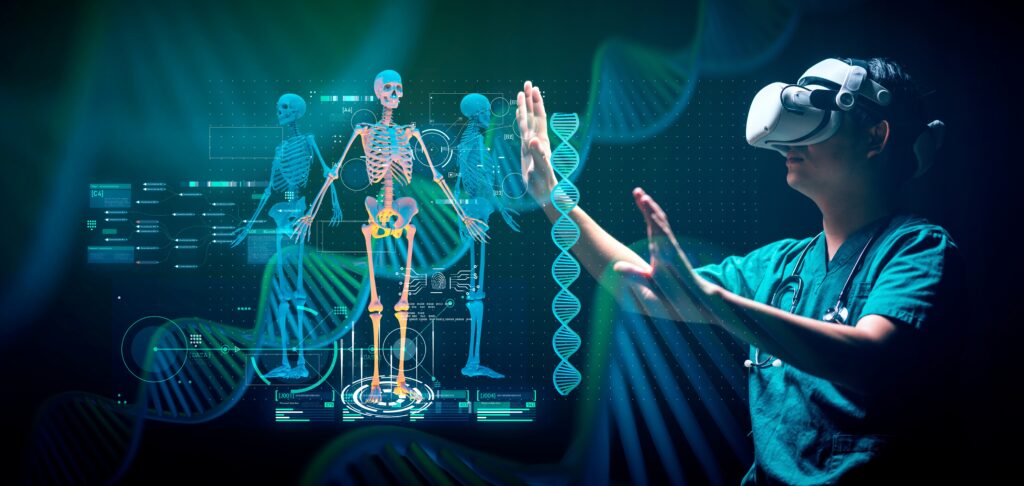
AI Revolutionizing Healthcare: Early Disease Detection and Personalized TreatmentAI Revolutionizing Healthcare: Early Disease Detection and Personalized Treatment Artificial intelligence (AI) is rapidly transforming healthcare, offering unprecedented capabilities for early disease detection and personalized treatment. The integration of AI into healthcare systems is revolutionizing the way we diagnose, treat, and prevent diseases. Early Disease Detection AI algorithms can analyze vast amounts of data from medical records, wearable devices, and imaging scans to identify subtle patterns that may indicate early signs of disease. This allows physicians to detect diseases at earlier stages, when they are more treatable and less likely to cause serious complications. For example, AI-powered diagnostic tools can analyze mammograms with higher accuracy than humans, leading to earlier detection of breast cancer. Personalized Treatment AI can also help tailor treatments to the individual needs of each patient. By analyzing patient-specific data, including genetics, lifestyle, and medical history, AI algorithms can make predictions about disease progression and response to therapy. This information allows physicians to select the most effective treatment options and minimize side effects. Applications in Healthcare The applications of AI in healthcare are vast and include: * Cancer Detection: AI-powered algorithms can analyze biopsies, MRI scans, and other imaging data to detect early signs of cancer, improving survival rates. * Personalized Drug Dosing: AI can predict how patients will respond to specific medications based on their genetic makeup and other factors, ensuring optimal dosing for maximum efficacy. * Disease Prognosis: AI algorithms can analyze patient data to predict the likelihood of developing certain diseases, such as heart disease or diabetes, allowing for early interventions. * Remote Patient Monitoring: AI-enabled devices can track vital signs and other health metrics, enabling remote monitoring of patients with chronic conditions and early detection of potential complications. Benefits of AI in Healthcare The integration of AI into healthcare offers several benefits, including: * Improved Patient Outcomes: Earlier disease detection and personalized treatment lead to better patient outcomes and reduced mortality rates. * Reduced Healthcare Costs: AI-powered tools for early detection and preventive care can save on healthcare expenses by preventing the development of costly late-stage diseases. * Enhanced Patient Experience: AI-assisted diagnosis and treatment can improve patient satisfaction by providing more accurate and personalized care. * Increased Accessibility to Healthcare: AI-enabled remote patient monitoring and self-management tools can make healthcare more accessible to patients in remote areas or with mobility limitations. Conclusion AI is revolutionizing healthcare by enabling early disease detection and personalized treatment. By empowering physicians with advanced diagnostic tools and predictive models, AI is improving patient outcomes, reducing healthcare costs, and enhancing the overall patient experience. As AI technology continues to advance, we can expect even more transformative applications in the future, leading to a healthier and more equitable healthcare system for all.
Posted inNews